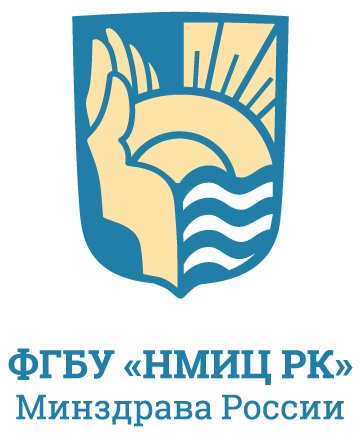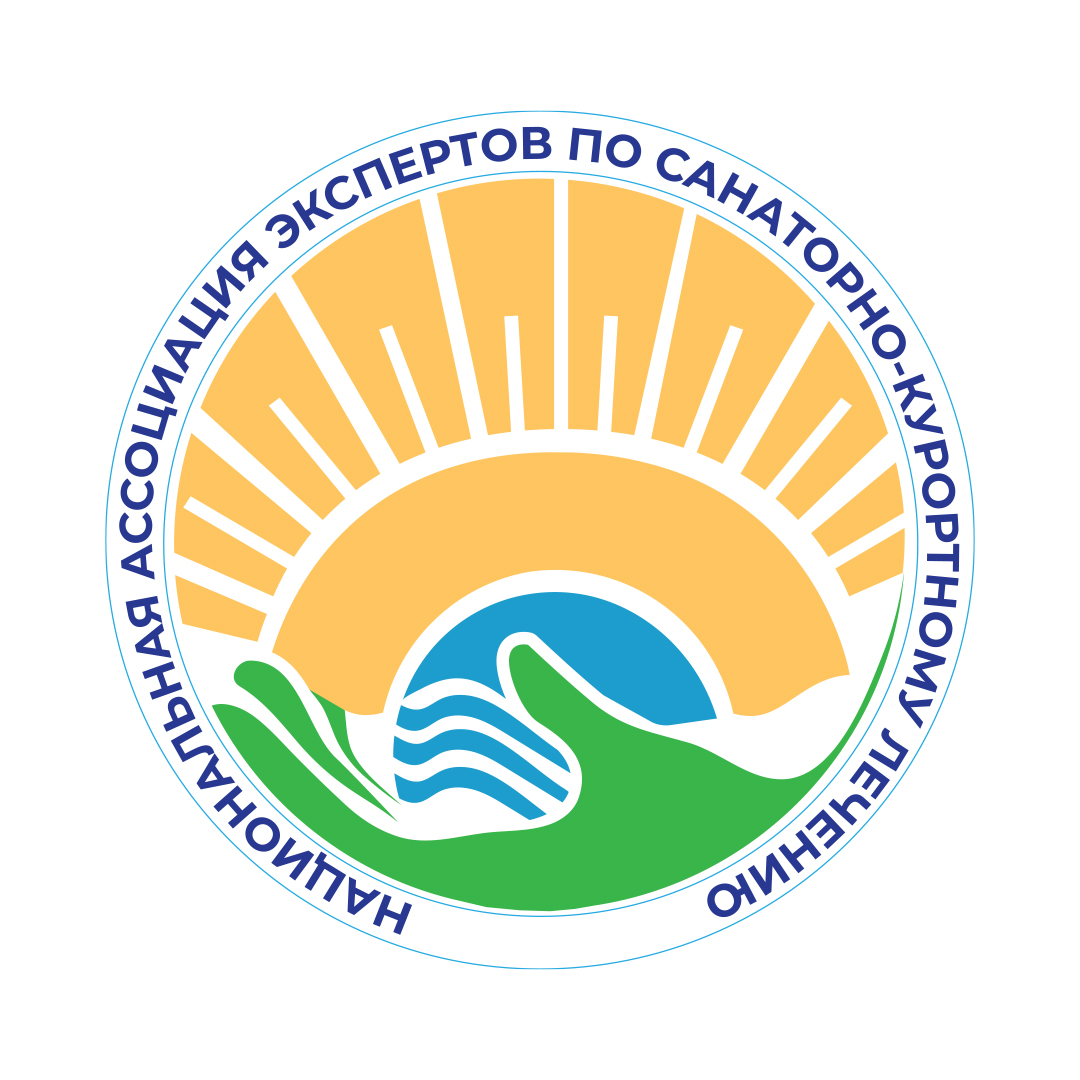Issue 6-10, 2020
Original article
Information of Patients of Neurological Profile and Students of Medical Academies about Ways to Improve Quality of Everyday Life
1 ![]() Yastrebtseva I.P., 1
Yastrebtseva I.P., 1 ![]() Belova V.V., 1
Belova V.V., 1 ![]() Ermolaeva E.V., 1
Ermolaeva E.V., 1 ![]() Tychkova A.S.
Tychkova A.S.
1 Ivanovo State Medical Academy, Ivanovo, Russian Federation
ABSTRACT
Introduction. One of the main tasks of the rehabilitation is to train the patient and his relatives, restore their ability to basic householdself-care, form a commitment to secondary prevention, and improve the patient’s adaptation to the environment. Volunteers can playan important role in informing patients.The aim of the work was to analyze the knowledge of patients with neurological pathology about the ways of social adaptation, improvingthe quality of their daily life and the formation of health-saving competencies in medical studentsMaterials and methods. The study included 220 neurological patients who, at the IvSMA clinic, listened to conversations in the framesof the School of Health. An analysis of their awareness of the issues under discussion was carried out using specially designed tests. Ananalysis of the awareness of 205 students of different courses of study at a medical academy on similar issues was conducted. Conversationswith patients were conducted by students of volunteer group.Research results and discussion. Analysis of the results of testing patients in each conversation showed an improvement in theirawareness with an increase in the number of points scored by 1–2 for each lesson (p<0.05). For students of different courses, awarenessincreased depending on the duration of study at the academy. A training conversation increased the level of knowledge of volunteers.After the conversation the test of 24 questions the volunteers wrote 5.50 points better (p<0.05), than before the conversation, and thetest of 6 questions - 1.5 points better (p<0.05), which indicates the effectiveness of the lessons.Conclusion. Conversations within the framework of the School of Health increase the awareness of patients with neurological pathologyabout ways of social- domestic adaptation to changing living conditions and methods of secondary prevention. The level ofknowledge of senior students reflects the development of the proper level of information when visiting clinical bases. A preliminarytraining session with students increases their level of knowledge and contributes to the formation of professional competencies of aspecialist.
KEYWORDS: stroke, information of patients, commitment, quality of life, questionnaires, volunteers
FOR CITATION: Yastrebtseva I.P., Belova V.V., Ermolaeva E.V., Tychkova A.S Information of Patients of Neurological Profile and Students of Medical Academies about Ways to Improve Quality of Everyday Life. Bulletin of Rehabilitation Medicine. 2020; 6 (100): 39–44. https://doi.org/10.38025/2078-1962-2020-100-6-39-44
References:
- Bidenko M. A., Bortnik O. V. Opyt organizacii otdeleniya vtorogo etapa medicinskoj reabilitacii pacientov s ostrymi narusheniyami mozgovogo krovoo-brashcheniya [Experience in organizing the Department of the second stage of medical rehabilitation of patients with acute disorders of cerebral circulation: Bulletin of Rehabilitation Medicine]. Bulletin of Rehabilitation Medicine. 2019; 1 (89): 10-15 (In Russ.).
- Bodrova R. A. Opredelenie reabilitacionnogo potenciala u lic, perenesshih travmu spinnogo mozga s pozicij mezhdunarodnoj klassifikacii funk-cionirovaniya, ogranicheniya zhiznedeyatel’nosti i zdorov’ya [Determination of the rehabilitation potential in persons who have suffered spinal cord injury from the perspective of the international classification of functioning, limitation of vital functions and health]. Bulletin of Rehabilitation Medicine. 2015; (4): 13-22 (In Russ.).
- Dovgalyuk Yu. V., Arhipova S. L., Chistyakova Yu. V. Ocenka effektivnosti tret’ego etapa medicinskoj reabilitacii bol’nogo, perenesshego ostryj koronar-nyj sindrom, s pozicij Mezhdunarodnoj klassifikacii funkcionirovaniya [Evaluation of the effectiveness of the third stage of medical rehabilitation of a patient after acute coronary syndrome from the perspective of the International Classification of Functioning]. Vestnik Ivanovskoj medicinskoj akademii. 2017; (2): 45-48 (In Russ.).
- Kuzyakina A. S., Kuprejchik V. L., Bogatyrev A. D., Anastasevich O. A., Lucki L., Treger Yu. Medicinskaya reabilitaciya v ramkah dnevnogo stacionara [Medical rehabilitation in the framework of a day hospital: Bulletin of Rehabilitation Medicine]. Bulletin of Rehabilitation Medicine. 2017; 6 (82): 21-27 (In Russ.).
- Belaya kniga po fizicheskoj i reabilitacionnoj medicine v Evrope [White paper on physical and rehabilitation medicine in Europe]. European journal of physical and rehabilitation medicine. 2019; 54 (2): 11-18. https://doi.org/10.23736/S1973-9087.18.05143-2 (In Russ.).
- Ivanova G. E., Zajcev O. S., Maksakova O. A., Prokopenko S. V., Ivanova N. E. Organizacionnye aspekty obespecheniya vosstanovleniya psihicheskoj deyatel’nosti v processe nejroreabilitacii [Organizational aspects of ensuring the recovery of mental activity in the process of neurorehabilitation]. Bulletin of Rehabilitation Medicine. 2018; 2 (84): 37-40 (In Russ.).
- Ivanova G. E., Aronov D. M., Bubnova M. G., Mishina I. E., Sarana A. M. Pilotnyj proekt “Razvitie sistemy medicinskoj reabilitacii v rossijskoj federacii”. Siste-ma kontrolya i monitorirovaniya efektivnosti medicinskoj reabilitacii pri ostryh narusheniyah mozgovogo krovoobrashcheniya [Pilot project “Development of a medical rehabilitation system in the Russian Federation”.The system of control and monitoring the effectiveness of medical rehabilitation in acute cerebrovascular accidents]. Vestnik Ivanovskoj medicinskoj akademii. 2016; (1): 19-22 (In Russ.).
- Shmonin A. A., Mal’ceva M. N., Mel’nikova E. V., Ivanova G. E. Bazovye principy medicinskoj reabilitacii, reabilitacionnyj diagnoz v kategoriyah MKF i re-abilitacionnyj plan [Basic principles of medical rehabilitation, rehabilitation diagnosis in the ICF categories and rehabilitation plan]. Bulletin of Rehabilitation Medicine. 2017; 2 (78): 16-22 (In Russ.).
- Volodeeva E. A., Yastrebceva I. P., Belova V. V., Baklushin A. E. Ishemicheskiyi nsult i soputstvuushaya mercatelnaya aritmia: rezultativnost reabilitacii [Ischemic stroke and concomitant atrial fibrillation: the effectiveness of rehabilitation.]. Naychniypoisk. 2015; (2.2): 42-45 (In Russ.).
- Giniyatova U. R., Komarov S. D., Koryagina N. A., Ivanova S. V., Ruzenskaya E. V. Reabilitacionnie vozmozhnosti socialnogo volonterskogo proekta “antistress” [Rehabilitation possibilities of the anti-stress social volunteer project.]. Naychniy poisk. 2015; (2.2): 50-53 (In Russ.).
- Baklushina E. K., Bursikova D. V., Panueva N. N. Social’no-gigienicheskie i mediko-organizacionnye aspekty informacionnogo soprovozhdeniya pacien-tov, perenesshih insul’t, na vtorom etape reabilitacii [Socio-hygienic and medical-organizational aspects of information support for stroke patients at the second stage of rehabilitation]. Vestnik Ivanovskoj medicinskoj akademii. 2016; (1): 98-101 (In Russ.).
- Shmonin A. A., Mal’ceva M. N., Mel’nikova E. V., Ivanova G. E. Problemy priverzhennosti lekarstvennoj terapii v medicinskoj reabilitacii [Problems of drug therapy adherence in medical rehabilitation]. Medical Rehabilitation. 2017; 140 (11): 20-26 (In Russ.).
- Mal’ceva M. N., Mel’nikova E. V., Mel’nikova M. N., Shmonin A. A., Sudnikova I. A., Ivanova A. V. Vliyanie informirovannosti pacienta s ostrym narusheniem mozgovogo krovoobrashcheniya vo vremya gospitalizacii o srede okruzheniya na razvitie postinsul’tnoj depressii [The effect of the awareness of a patient with acute cerebrovascular accident during hospitalization about the environment on the development of post-stroke depression]. Consilium Medicum. 2015; (9): 63-65 (In Russ.).
- Forster A., Brown L., Smith J., House A., Knapp P., Wright JJ., Young J. Information provision for stroke patients and their caregivers. Cochrane Database of Systematic Reviews. 2012; (11). https://doi.org/10.1002/14651858.cd001919.pub3
- Krasnov V. S., Shmonin A. A., Mal’ceva M. N., Mel’nikova E. V., Ivanova G.E Kognitivnye narusheniya v medicinskoj reabilitacii [Cognitive impairment in medical rehabilitation]. ConsiliumMedicum. 2016; 18 (13): 32-36 (In Russ.).
- Kovalenko E. A., Bogolepova A. N. Predshestvuyushchie insul’tu kognitivnye narusheniya i ih vliyanie na priverzhennost’ terapii [Cognitive impairment prior to stroke and its effect on treatment adherence]. Nevrologiya, nejropsihiatriya, psihosomatika. 2018; (2): 63-67 (In Russ.).
- Kovalchyk V. V. Pacienty posle insulta: osobennosti vedenia i reabilitacii. [Post-stroke patients: management features and rehabilitation.] Siberian Medical Review. 2017; (1): 99-106. https://doi.org/10.20333/2500136-2017-1-99-106 (In Russ.).
- Khatkova S. E., Akulov M. A., Orlova O. R., Orlova A. S. Sovremennie podhodi k reabilitacii bolnih posle insulta [Modern approaches to the rehabilitation of patients after stroke.]. Klinicheskiy opit. 2016; (1): 27-33 (In Russ.).
- Yuldashova Yu.Kh. Prognosirovanie riska mozgovogo insulta u bolnih pereneshix tranzitornie ishemicheskie ataki [Predicting the risk of cerebral stroke in patients with transient ischemic attacks]. Clinical medicine. FORCIPE. 2019; (2): 618 p. (In Russ.).
- Ivanova G. E., Mel’nikova E.V, Shmonin A. A., Shamalov N. A., Stahovskaya L. V., Meshkova K. S. Medikamentoznaya podderzhka reabilitacionnogo pro-cessa pri ostryh narusheniyah mozgovogo krovoobrashcheniya [Drug support for the rehabilitation process in acute cerebrovascular accidents]. Consilium Medicum. 2016; 18 (2.1.): 20-27 (In Russ.).
- Shevchenko E. V., Golubev V. L., Danilov A. B., Gak S. E., Simonov S. G. Rol’ informacionno-obrazovatel’nyh program dlyabol’nyh pri lechenii hronicheskoj golovnoj boli [The role of information and educational programs for patients in the treatment of chronic headache]. Zhurnal nevrologii i psihiatriiim. S. S. Korsakova. 2013; (11): 59-63 (In Russ.).
- Luchkevich V. S., Zelionko A. V. Medico-socialniy analiz vliania pokazatelej medicinskoj informirovannosti i zdorov’esberegayushcego povedenia na os-novnie kharakteristiki zdorovia i kachestva zhizni gorodskih i selskix zitelej [The medical and social analysis of the influence of indicators of medical awareness and health-preserving behavior on the main characteristics of health and quality of life of urban and rural residents.]. Izvestiya Samarskogo nauchnogo centra RAN. 2016; 18 (2): 1-8 (In Russ.).
- Rasulov I. M., Gribkov D. M., Kojchuev R. A., Rasulova S. G. Medicinskoe obrazovanie i professional’noe razvitie [The impact of teaching patient interaction on the effectiveness of the educational process in the clinical department]. Medicinskoe obrazovanie i professional’noe razvitie. 2017; (4): 1-6 (In Russ.).

The content is available under the Creative Commons Attribution 4.0 License.
©
This is an open article under the CC BY 4.0 license. Published by the National Medical Research Center for Rehabilitation and Balneology.




